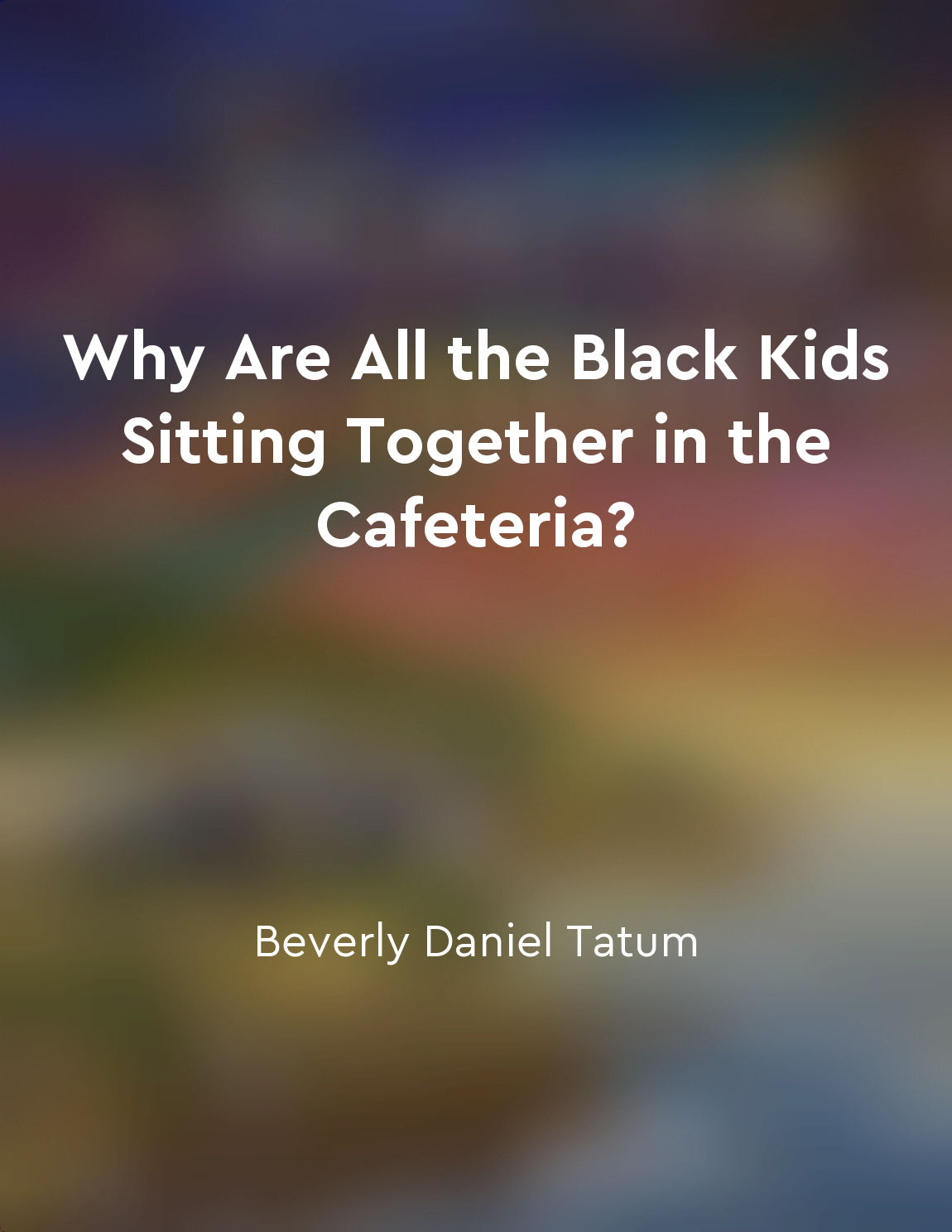Fear of difference can lead to segregation from "summary" of Why Are All the Black Kids Sitting Together in the Cafeteria? by Beverly Daniel Tatum
The fear of difference can lead to segregation. When people feel uncomfortable or anxious about those who are different from themselves, they are more likely to seek out others who are similar to them. This can create a sense of safety and familiarity, as people are drawn to those who share their background or experiences. In the context of race, this fear of difference can manifest in the form of segregation. People may feel more comfortable socializing with others of the same race, as they are more likely to share similar cultural norms, values, and experiences. This can lead to racial segregation in schools, workplaces, and communities, as people self-segregate based on race. Segregation can also be reinforced by societal structures and institutions. For example, housing policies, school zoning laws, and workplace practices can all contribute to segregation by limiting opportunities for interaction between people of different races. When people are not given the chance to engage with those who are different from themselves, stereotypes and prejudices can go unchallenged, further perpetuating segregation. Ultimately, the fear of difference can have profound consequences for individuals and society as a whole. When people segregate themselves based on race, they miss out on the opportunity to learn from and connect with others who have different perspectives and life experiences. This can lead to misunderstandings, tension, and conflict between racial groups, further perpetuating stereotypes and divisions. It is important to recognize and address the fear of difference in order to break down barriers and promote greater understanding and unity among people of different races. By confronting our own biases and actively seeking out opportunities to engage with those who are different from ourselves, we can work towards a more inclusive and equitable society where segregation is no longer the norm.Similar Posts
Paradigm shift can greatly impact our effectiveness
In life, we are often guided by our paradigms - the lenses through which we view the world. These paradigms shape our thoughts,...

Change is possible through collective action
It is important to remember that when we talk about fighting racism, we are talking about changing systems that have been in pl...
The truth can be a weapon
The power of the powerless lies in their ability to speak the truth, even in the face of oppression and intimidation. By shinin...
Our behavior is influenced by social interactions
In social psychology, we explore the idea that our behavior is heavily influenced by the social interactions we engage in on a ...
Curiosity fuels exploration of new frontiers
Curiosity is the driving force behind human exploration. It is the insatiable desire to know and understand the unknown that co...

Militarization became entrenched
The military's dominance within Egypt's political landscape solidified over time. As protests subsided and the initial chaos of...
Rosa Parks sparked the Montgomery Bus Boycott
In 1955, in Montgomery, Alabama, Rosa Parks refused to give up her seat on a segregated bus to a white passenger. This act of d...

A positive mindset leads to fulfilling connections
When we approach life with a positive mindset, we attract positive energy and experiences into our lives. This positivity emana...
Cultural capital plays a crucial role in shaping individuals' tastes
Cultural capital is a significant force that influences individuals' tastes and preferences. This form of capital is not just a...
The power of storytelling
Stories have always held a remarkable power, a force that transcends time and space. They have the ability to captivate, to enl...

